IP Provocations
IP Provocations is made with the support of IP Australia - we’re grateful to have had the opportunity to ask such broad ranging questions about the patent system to such interesting people, and get so many surprising answers. The IP Provocations team had full academic freedom in designing these conversations, and the views expressed are those of the individual speakers.
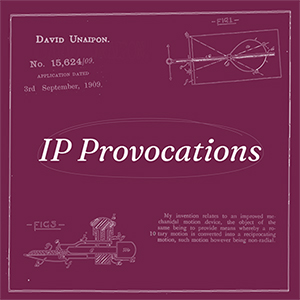
This podcast is a project of IPRIA, the Intellectual Property Research Institute of Australia, and had additional support from Melbourne Law School and Sydney Law School. The music was composed and recorded by Nina Buchanan. The hosts are Professors Rebecca Giblin and Kimberlee Weatherall, and research support was provided by barrister Amy Surkis. The producer is Greta Robenstone. Anders Furze filled in all the remaining gaps.
This podcast was produced on stolen land - sovereignty was never ceded. Always was, always will be, Aboriginal land.
Original music for IP Provocation was created by Nina Buchanan
Your hosts
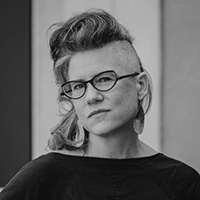
Rebecca Giblin
ARC Future Fellow Director, Intellectual Property Research Institute of Australia (IPRIA)
Rebecca Giblin (she/her) is an ARC Future Fellow and Professor at Melbourne Law School, and the Director of the Intellectual Property Research Institute of Australia. Her work sits at the intersection of law and culture, focusing on creators’ rights, access to knowledge and culture, technology regulation and copyright. Giblin’s books include Code Wars (2011) and What if we could reimagine copyright? (with Professor Kimberlee Weatherall, 2017). Her newest book, Chokepoint Capitalism, (co-authored with Cory Doctorow, 2022) explains how Big Tech and Big Content captured creative labour markets, and how we can take them back.

Kimberlee Weatherall
Professor, The University of Sydney Law School
Kimberlee is a Professor of Law at the University of Sydney focusing on the regulation of technology and intellectual property law, and a Chief Investigator with the ARC Centre of Excellence for Automated Decision-Making and Society. She is a Fellow at the Gradient Institute, a research institute developing ethical AI, and a research affiliate of the Humanising Machine Intelligence group at the Australian National University, and a co-chair of the Australian Computer Society’s Advisory Committee on AI Ethics.
In the season one finale of IP Provocations, we’re joined by barrister Amy Surkis to reflect on the series and ponder what we’ve learned. Amy is an expert IP barrister and was our stellar research assistant this season. We chat about what has surprised us and stuck with us from across the series. In particular, we unpack the interplay between patent systems, and broader socio-economic systems, and the extent to which patent laws replicate existing inequalities. How does the patent system act as a feedback loop, rewarding wealth and privilege with more wealth and privilege? And what can we do about it? In this very special episode of IP Provocations, Rebecca and Kim talk to Larissa Behrendt about First Nations innovation - and what we can learn from the people who lived sustainably in the land now known as Australia for over 65,000 years. In part 2 of this extended conversation with activist Achal Prabhala and the WTO’s Tony Taubman, we pick up where we left off, asking if the approach taken to the Medicines Patent Pool could also be used to drive our response to the climate emergency. This episode’s guests are Antony Taubman Director of the Intellectual Property, Government Procurement and Competitive Division of the World Trade Organisation (WTO)and Senior Fellow at the Melbourne Law School, and Achal Prabhala, a Bangalore-based activist, writer, researcher and filmmaker. In 2022, just 1.8 per cent of Australian patent applications were by all-women teams, but half were all-male teams, according to research from Dr Vicki Huang. In this first episode of IP Provocations, we drill experts Janet Freilich and John Liddicoat about the extent to which the promises patent law makes match up with what happens in practice. Is the system working as it’s supposed to? Are patents incentivising the types of innovation we want most? Do we still see scientific breakthroughs without them? What would happen if every patent was actually enforced? And why on earth do people go to the effort of maintaining patents long after they realise the invention they’re protecting is useless?
Episode #6 // The wrap-up
Episode #5 // On Australia's First inventors - and living sustainably together
Drawing upon the themes of Behrendt’s new documentary series The First Inventors, Behrendt speaks about how First Nations’ technologies can tackle climate change, and how Indigenous storytelling, governance and kinship systems are integral to First Nations innovation. She talks about First Nations invention as an entire system of cultural knowledges and understandings sitting outside the Western IP system, and how The First Inventors highlights best practice, Indigenous-led research collaboration.
Episode #4 // Greed v Need: Does the patent system incentivise the right things? Part Two
We then tackle a host of thorny patent issues. Should we focus on the distribution of knowledge, and not just generating more of it? Just how bad is the problem of patent trolls? Why are Moderna and Pfizer facing messy legal disputes over the IP behind COVID-19 vaccines? What did the controversial TRIPS waiver actually do? And what are the limits of patents in incentivising innovation?
Episode #3 // Greed v Need: Does the patent system incentivise the right things? Part One
Our chat centres around the pharmaceutical industry. How are skewed incentives prioritising the lives of rich people over poor people? How is the patent system like high jumping? What impact is the UN’s Medicines Patent Pool having on equalising access to medicine? And are universities falling into the trap of seeing patents as the most important validation of their research agenda?
Episode #2 // Inventors are white men - or are they? Patents, race and gender
In this episode of IP Provocations, we dig into the question of who the system recognises as inventors, and who it excludes. What is the correlation between patent protection and racial violence? Why is the stereotypical image of an inventor so often a white man like Thomas Edison or Elon Musk? And if the patent system excludes certain types of knowledge while favouring others, is it really doing its job of ensuring we all benefit from great ideas?
This episode’s guests are Dr Anjali Vats Associate Professor of Law, with a secondary appointment in Communication, at the University of Pittsburgh School of Law and Dr Jessica Lai Associate Professor in the School of Accounting and Commercial Law at the Victoria University of Wellington.
Episode #1 // Is patent law writing cheques it can’t cash?
Guests

Larissa Behrendt
Larissa Behrendt is a Eualeyai/Kamillaroi woman. She is an award-winning author and filmmaker, a lawyer and the Professor of Law and Director of Research at the Jumbunna Institute for Indigenous Education and Research at the University of Technology, Sydney. She is the host of ABC Radio National show Speaking Out. She is the director of The First Inventors, a four-part series that tells the story of First Nations innovation.

Janet Freilich
Janet Freilich is a Professor of Law at Fordham University. Prior to entering academia, she practiced as a patent litigator and prosecutor.
image courtesy of Janet Freilich
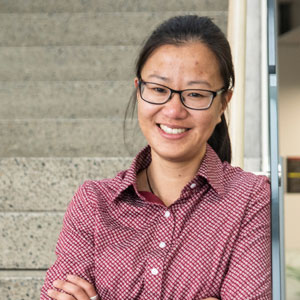
Jessica Lai
Dr Jessica Lai is Associate Professor in the School of Accounting and Commercial Law at the Victoria University of Wellington. She is the author of Patent Law and Women: Tackling Gender Bias in Knowledge Governance (2022, Routledge), which analyses the gendered nature of patent law and the knowledge governance system it supports.
image courtesy of Jessica Lai

John Liddicoat
Dr John Liddicoat is senior lecturer in law at King’s College, London. He is particularly interested in biotechnology and life-sciences, and the role patent law plays incentivising innovation in these areas.
image courtesy of John Liddicoat
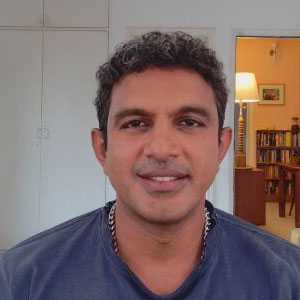
Achal Prabhala
Achal Prabhala is a Bangalore-based activist, writer, researcher and filmmaker. He is the coordinator of the AccessIBSA project, which campaigns for access to medicines in India, Brazil and South Africa.
image courtesy of Achal Prabhala
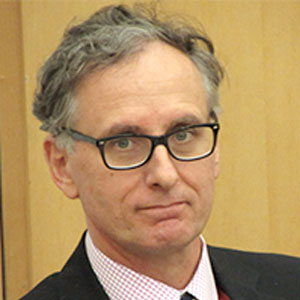
Antony Taubman
Antony Taubman is Director of the Intellectual Property, Government Procurement and Competitive Division of the World Trade Organisation (WTO), a position he has held since 2009. He is also a Senior Fellow (Melbourne Law Masters) at the Melbourne Law School.

Anjali Vats
Dr Anjali Vats is Associate Professor of Law, with a secondary appointment in Communication, at the University of Pittsburgh School of Law. She is the author of The Color of Creatorship: Intellectual Property, Race, and the Making of Americans (Stanford University Press, 2020), which argues that US intellectual property myths are structured by implicit and explicit racialised understandings of who counts as a ‘good’ or ‘bad’ intellectual property citizen, and thus deserves to be rewarded with intellectual property rights.
image courtesy of Anjali Vats
Music

image by Ying Ang
We commissioned Nina Buchanan to compose original music for our intro and outro. We loved her work so much we wanted to embed the full track here so you could have a listen! If you want to get in touch with Nina, head to her website.
Prof Rebecca Giblin appeared on ABC RN Drive with Andy Park to discuss ‘the problem with patents’. You can listen to the full segment on the ABC RN website.
Prof Rebecca Giblin, Prof Kimberlee Weatherall and Anders Furze co-wrote an article for The Conversation on how patents incentivise innovation - and how they don’t. You can read the piece on The Conversation website.
Do you have any comments or questions about what we’ve discussed? We’d love to hear from you! You can leave a voice note or comment on Spotify podcasts, or you can get in touch via Apple podcasts.
